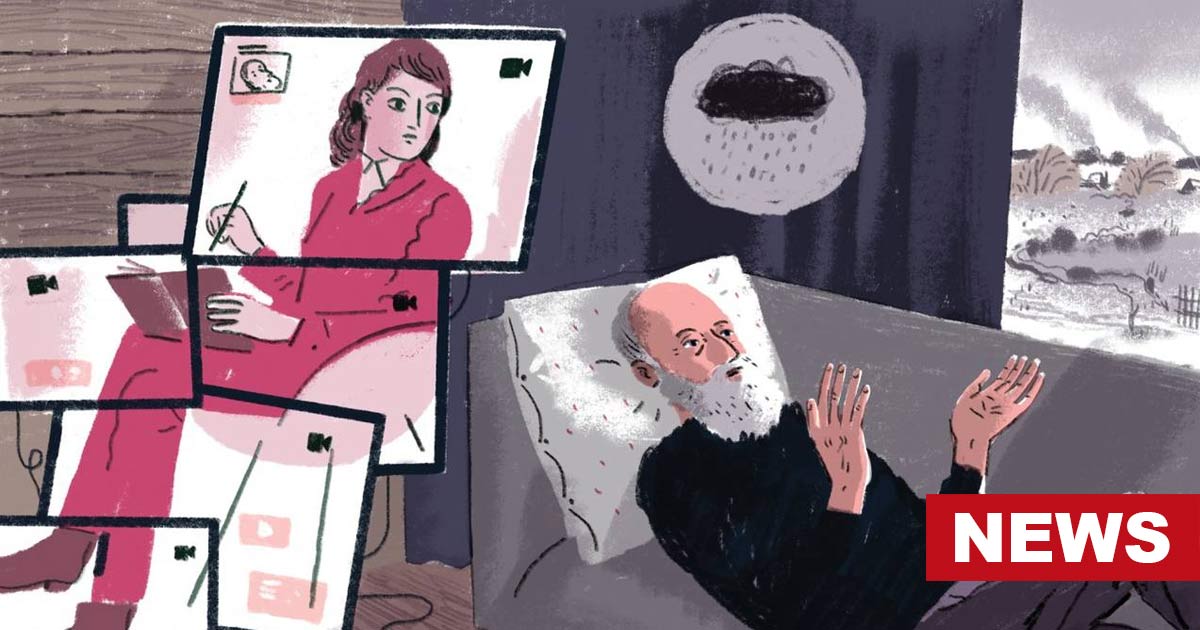- Digital psychiatry refers to the use of digital technologies to provide mental health support and treatment.
- It can help fill the mental health care gap, provide early intervention, and reduce incidences of mental health disorders.
What Is Digital Psychiatry?
Digital psychiatry refers to the use of digital technologies (such as smartphone apps, wearable sensors, and online platforms) to provide mental health support and treatment. It is an emerging field that aims to address the challenges faced by traditional mental health care systems, including limited access to care, high costs, and stigma associated with seeking help.
Recent Advances In Digital Psychiatry
In recent years, there have been significant advancements in digital psychiatry. Various smartphone apps, such as Calm, Headspace, and Sanvello, offer guided meditations, mindfulness exercises, and anxiety management techniques.
These apps provide personalized wellness plans based on user preferences and lifestyles. While they are not meant to replace clinical care, they can be helpful as adjunct tools when used under the guidance of a mental health professional.
Additionally, digital psychiatry has expanded to include software platforms designed for clinicians. For example, the TrakStar platform by Neuronetics helps manage transcranial magnetic stimulation, a therapy approved for conditions such as major depressive disorder and obsessive-compulsive disorder.
It assists in determining patient eligibility, tracking treatment outcomes, and monitoring patients post-treatment to prevent relapse. These platforms aim to enhance the efficiency and effectiveness of mental health care by providing valuable data insights and improving treatment decision-making.
Academic researchers have also contributed to the field of digital psychiatry. MindLAMP, developed by researchers at Beth Israel Deaconess Medical Center, collects data on various aspects of patients’ lives, including sleep patterns, physical activities, and physiological symptoms.
This information is used to offer customized mindfulness, meditation, and breathing interventions. The app allows clinicians and patients to collaboratively interpret the collected data, facilitating more personalized and responsive care.
Can Digital Psychiatry Fill The Mental Health Care Gap?
Worldwide, the mental health care gap is characterized by a shortage of mental health professionals and limited access to care. This is a significant challenge, but digital psychiatry has the potential to help fill this gap by providing accessible and scalable mental health support.
Smartphone apps and online platforms can reach individuals who may not have access to traditional mental health services due to geographical or financial constraints.
Furthermore, digital psychiatry can provide early intervention and support. Through data collection and analysis, these digital tools can identify patterns and changes in users’ mental health status, allowing for timely intervention and prevention of more severe conditions.
This proactive approach can help reduce the burden on mental health professionals and enable them to focus on more critical cases.
Pitfalls Of Digital Psychiatry
While digital psychiatry holds promise, there are several pitfalls that need to be considered. First, the lack of scientific evidence supporting the effectiveness of many digital psychiatry tools raises concerns.
The field needs robust research and independent studies to validate the clinical benefits of these technologies. Without evidence-based practices, there is a risk of ineffective treatments being widely adopted.
Privacy and data security are also significant concerns in digital psychiatry. The collection and storage of sensitive mental health information raise ethical and legal challenges.
Data breaches, whether through external hacking or internal mistakes, can compromise patient confidentiality and expose individuals to privacy violations. This calls for stricter regulations and standards to safeguard patient data and ensure the responsible use of digital psychiatry tools.
Availing Digital Psychiatry The Right Way
To fully utilize the potential of digital psychiatry while mitigating risks, it is important to maintain a balanced approach through collaboration among mental health providers, data privacy officials, and patients.
Building a strong foundation of evidence for these technologies and ensuring their clinical efficacy before widespread implementation is crucial. Regulators should actively monitor and hold companies accountable for the quality and effectiveness of their digital psychiatry offerings by establishing standards and guidelines.
Education and awareness campaigns can help combat the stigma surrounding mental health and encourage individuals to seek professional help, with digital psychiatry viewed as a supplementary tool rather than a substitute for traditional care.
Collaboration and a patient-centered approach are crucial to availing the benefits of digital psychiatry while ensuring patient safety and care quality.
Know More About –
Related Articles –
- The Insider’s Guide To Talk Therapy: What You Need To Know To Get The Most Out Of Your Sessions
- How Do I Know If a Therapist is Right For Me? 10 Signs
- 10 Reasons Why People Refuse to Talk to Therapists



